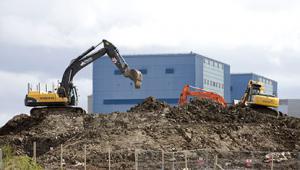Following approval of the scheme by French energy company EDF, which will construct the plant in Somerset, it was expected the government would agree the deal.
However Clark, who was appointed business, energy and industrial strategy secretary in Theresa May’s government earlier this month, said that the government needed more time to review the project.
“The UK needs a reliable and secure energy supply and the government believes that nuclear energy is an important part of the mix,” he stated.
“The government will now consider carefully all the component parts of this project and make its decision in the early autumn.”
The project has been controversial as the deal guaranteed the French state-owned energy firm EDF a price for the electricity generated from the plant for 35 years, which was set at £92.50 per megawatt hour in 2012 prices.
If this price, which is around double current levels, remains above market rates, it would be met from customer bills over 35 years. This minimum payment, known as the ‘strike price’, has been designed to encourage private investment in energy projects as part of the government’s energy market reforms.
In addition, the Treasury has offered to provide a £2bn guarantee to help fund construction. This offer was made when it was announced that China General Nuclear Power Corporation would invest in the project alongside EDF, and is expected to meet around one third of the £18bn cost.
Following the announcement of the review, the GMB trade union said that Clark was putting the project’s financing in doubt and 25,000 new jobs at risk.
Justin Bowden, the national secretary for energy at the union, which represents energy and engineering construction workers, said the decision was “bewildering and bonkers”.
He stated: “After years of procrastination, what is required is decisive action not dithering and more delay. This unnecessary hesitation is putting finance for the project in doubt and 25,000 new jobs at risk immediately after Brexit. It is a gross error of judgement and must be reversed.
“Building Hinkley will not on its own make up for successive governments' failure to have in place a coherent energy policy, but it is a very important step along that road and, as GMB has been warning now for months, the country's energy capacity is already so fragile that if we have a cold winter there is a high likelihood we will experience power cuts.”
Byron Orme a research fellow at the IPPR think-tank said that the review gave the government an opportunity to look again at whether there are cheaper ways to get nuclear power plants built.
“One very attractive option is for the government to take a more active role and provide direct public investment in projects. This route could shave up to £5.5bn from the costs of the UK’s nuclear programme and provide far greater value for bill payers.”



















